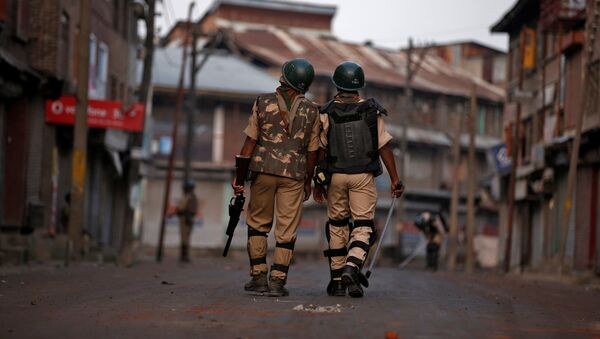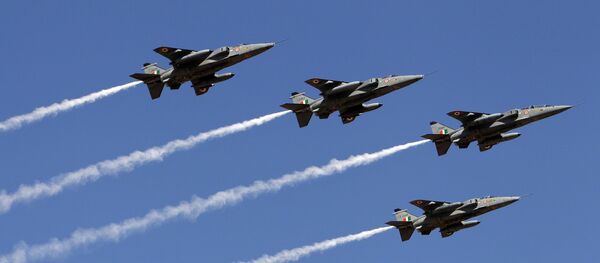"We are deeply concerned over the coming news, follow the situation and, of course, urge the parties to show restraint," the spokesman said.
Commenting on the recent exchange of airstrikes between India and Pakistan, Zamir Kabulov, the head of the Russian Foreign Ministry's Second Asian Department and presidential envoy for Afghanistan, said that Moscow was hoping for the de-escalation of tensions between the two states in the near future.
"We are seriously concerned about this situation. India and Pakistan are states friendly to Russia. We very much hope that the tension will be eliminated as soon as possible," Kabulov said.
READ MORE: Pakistan Shoots Down Two Indian Aircraft Inside its Airspace — Military
He noted that this situation shows the importance of the relationship between these two states for the stability of the region, but expressed doubt that this situation will have an impact on the Afghan peace process.
"I do not think that this may affect the Afghan settlement. India, of course, is an important player, but it is difficult for me to imagine how this will affect [the Afghan settlement]. There are concrete talks between Taliban and the United States, and the future of Afghanistan must be discussed by the Afghans themselves," Kabulov said.
On Tuesday, the Indian Air Force carried out an airstrike against a camp of the Jaish-e-Mohammad terrorist group, which claimed responsibility for the deadly terrorist attack against the Indian security convoy on February 14. The camp was situated in the Pakistani-controlled part of the Kashmir region. The Indian Foreign Ministry said that the attack was necessary. However, the Pakistani National Security Council reportedly rejected the claims that the airstrike targeted terrorists.
After February's terrorist attack, which left over 40 Indian paramilitary troops dead, the already-strained relations between India and Pakistan deteriorated even further. India blamed Pakistan for harbouring the terrorists responsible for the attack,and accused Islamabad of having a "direct hand" in the incident.
Pakistan in turn, rejected the allegations of its involvement in the attack and said that this was India's strategy to divert international attention from human rights violations in the Kashmir region.



